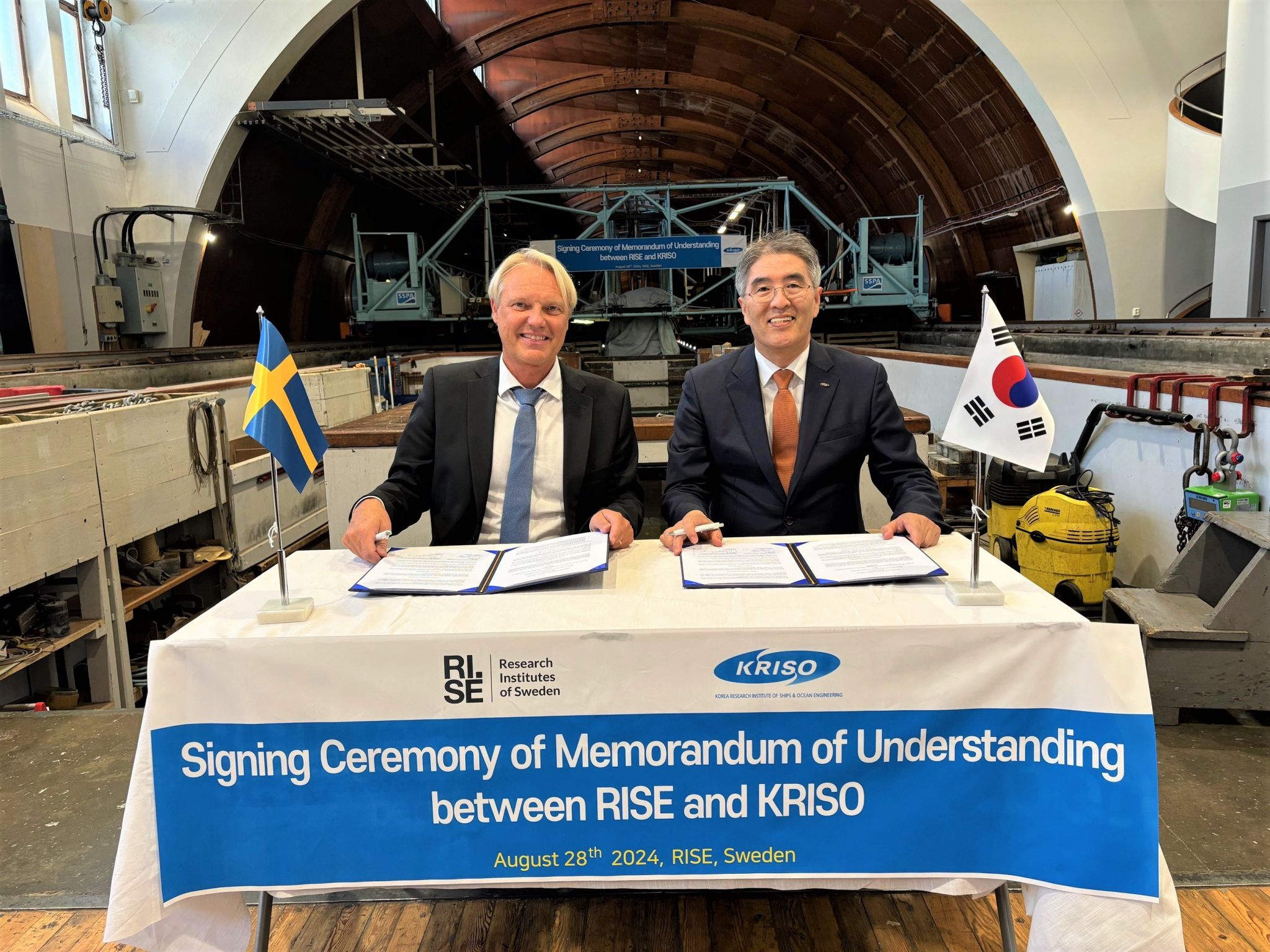Korea and Sweden Collaborate on Maritime Research Innovation
Key Ideas
- Korea's KRISO and Sweden's RISE Institutes sign MoU for joint maritime research, focusing on decarbonization and digitalization.
- KRISO previously partnered with ABS to advance SMR-powered ships and floating power generation platforms.
- KRISO also received AiP from ABS for an offshore hydrogen and ammonia production platform design in September 2023.
- The hydrogen production platform includes systems for clean water desalination, electrolysis, compression, nitrogen separation, and ammonia synthesis.
The Korea Research Institute of Ships & Ocean Engineering (KRISO) and RISE Research Institutes of Sweden have recently signed a memorandum of understanding (MoU) to collaborate on maritime research, particularly focusing on innovative technology development in areas like decarbonization and digitalization. This partnership aims to drive joint research efforts and progress in the maritime sector. Christian Finnsgård from RISE expressed optimism about the agreement, highlighting the potential for significant advancements through mutual benefits.
In a previous collaboration with the classification society ABS, KRISO worked on advancing small modular reactor (SMR)-powered ships and floating SMR power generation platforms. ABS provided regulatory analysis while KRISO developed core technologies and a commercialization model for these projects.
Furthermore, KRISO gained approval in principle (AiP) from ABS in September 2023 for its design of an offshore hydrogen and ammonia production platform. This platform is designed to produce green hydrogen using electricity from a wind farm. It incorporates various systems such as clean water desalination, electrolysis for hydrogen production, compression, nitrogen separation, and ammonia synthesis.
Overall, this collaboration and research initiatives between KRISO and RISE Institutes signify a positive step towards innovative maritime solutions and sustainable practices in the industry.
